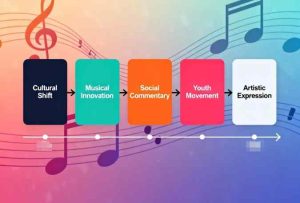
Becoming a new mom is a profound transformation, filled with emotions that range from overwhelming joy to unexpected challenges. After the delivery, the journey of motherhood truly begins, and postpartum care becomes an essential part of ensuring both physical recovery and emotional well-being. The period following childbirth is often overlooked in popular discussions, yet it holds immense significance in shaping a mother’s health and the overall bonding experience with her newborn. Understanding what to expect after delivery, from the bodily changes to mental health shifts, empowers women to approach this delicate time with confidence and compassion.
The body undergoes dramatic changes after birth, which is why postpartum care is crucial. Many new mothers share stories of surprise at how intense the recovery can be. For example, a friend of mine vividly described the days following her cesarean section — the soreness, the fatigue, and the delicate balance of managing pain while caring for a newborn. The healing process can differ widely depending on whether the delivery was vaginal or surgical, but in both cases, the body is in a state of rebuilding. Hormonal fluctuations, uterine contractions, and physical healing can all contribute to discomfort. Yet these symptoms are part of a natural progression, signaling the body’s return to a non-pregnant state.
In addition to physical recovery, many women experience what is often called the “baby blues,” characterized by mood swings, irritability, and weepiness. This is a common emotional response to the sudden hormonal shifts and the overwhelming responsibility of caring for a newborn. I remember a new mother confiding how the first few weeks felt like riding a wave of emotions—one moment joy, the next anxiety. It was through supportive conversations with her partner and healthcare providers that she found reassurance and strategies to cope. When these feelings persist or intensify, it may indicate postpartum depression, a condition that requires professional support and should never be stigmatized.
Nutrition and hydration are pivotal in postpartum care, yet often underestimated. A mother’s body is still recovering and needs plenty of energy to heal and produce nourishing breast milk. Many women find that eating nutrient-rich foods with plenty of protein, iron, and vitamins supports their strength and mood. One mother shared how incorporating homemade soups and fresh fruits into her diet made a noticeable difference in her energy levels during those first exhausting weeks. Staying hydrated is equally important, especially for breastfeeding moms, as it supports milk production and overall health. The old adage “eat for two” evolves into “nourish for two” in this delicate period.
Sleep—or the lack thereof—is another significant challenge in postpartum care. Newborns have unpredictable sleep patterns, which means mothers often experience fragmented and insufficient rest. One dad recalled how he and his wife worked as a team during the night, taking turns soothing the baby so each could get short naps when possible. This cooperative approach is vital, as chronic sleep deprivation affects mood, cognitive function, and physical recovery. It’s important for families to understand that postpartum care isn’t just about the mother alone but about creating an environment where the whole household supports her rest and healing.

Physical activity after delivery requires a gentle and gradual approach. While it might be tempting to rush back into pre-pregnancy routines, new moms need time to rebuild strength without overexerting themselves. Walking and light stretching can aid circulation and improve mood without straining healing tissues. I recall a mother who, after her six-week checkup, started attending postpartum yoga classes. She described how the group setting helped her regain confidence in her body and connect with other women navigating similar experiences. Such social support can be a powerful aspect of postpartum care, breaking isolation and providing a sense of community.
Breastfeeding, a central topic in postpartum care, often comes with its own set of triumphs and trials. Many new mothers cherish the bond that breastfeeding fosters but may also face challenges such as latching difficulties, nipple pain, or concerns about milk supply. A neighbor of mine shared her struggle during those first days, feeling overwhelmed and doubting her ability to nourish her baby. Thanks to the support of a lactation consultant, she gained practical tips and emotional encouragement that made all the difference. Whether a mother breastfeeds, formula feeds, or combines both, the most important aspect is that the baby is fed and the mother feels supported in her choice.
Postpartum care also involves attention to mental health beyond the initial “baby blues.” The identity shift from woman to mother can be profound and sometimes disorienting. Feelings of loss, loneliness, or questioning one’s capabilities are common but often go unspoken. One mother I know described how journaling her thoughts and joining a local new mothers’ support group helped her process the emotional upheaval. Healthcare providers who ask gentle, open-ended questions about mental well-being help destigmatize these experiences and connect women to resources. Emotional recovery is as crucial as physical healing in the postpartum period.
The importance of medical follow-ups cannot be overstated in postpartum care. The six-week postpartum checkup offers a chance to evaluate the mother’s physical and emotional health, address any complications, and discuss family planning. Yet, care doesn’t need to wait until this appointment. Any alarming symptoms—such as heavy bleeding, severe pain, or signs of infection—warrant prompt medical attention. A mother I know shared how her quick response to unusual symptoms helped prevent more serious complications. Open communication with healthcare providers ensures that postpartum care is personalized and responsive to individual needs.
Beyond medical and emotional aspects, postpartum care extends into adapting to new family dynamics and routines. The transition can bring shifts in relationships with partners, older siblings, and extended family members. One family described how involving grandparents in small caregiving tasks gave the new mom space to rest and reduced her stress. These adjustments often require patience and flexibility but also highlight the importance of a supportive network. Emotional resilience builds as mothers receive encouragement, help, and validation from those around them.
Self-care is an essential, though sometimes neglected, element of postpartum care. Finding moments of calm or personal time might seem impossible amid the whirlwind of newborn demands, but even small acts—like a quiet cup of tea, a short walk outside, or a few minutes of deep breathing—can restore balance. A friend recounted how these brief rituals became her lifeline, grounding her in the present and reminding her that caring for herself is part of caring for her baby. These simple gestures reflect the broader truth that postpartum care is not just medical but deeply human and holistic.
The journey through postpartum care is unique for every woman, shaped by individual experiences, health conditions, and social contexts. Some women face additional challenges such as gestational diabetes, high blood pressure, or complications from delivery, which require tailored care plans. Others may encounter unexpected joys, like a baby’s first smile or the first successful breastfeeding session, which provide encouragement and hope. These moments, both difficult and beautiful, weave together the complex tapestry of new motherhood.
As new mothers navigate the early weeks after delivery, the support they receive—whether from family, friends, healthcare professionals, or communities—can make all the difference. Each story of postpartum care is a reminder that this phase, though often demanding, is also rich with opportunities for healing, connection, and growth. Through kindness, understanding, and knowledge, women can face the postpartum period not just with resilience but with grace and hope 🌸.








